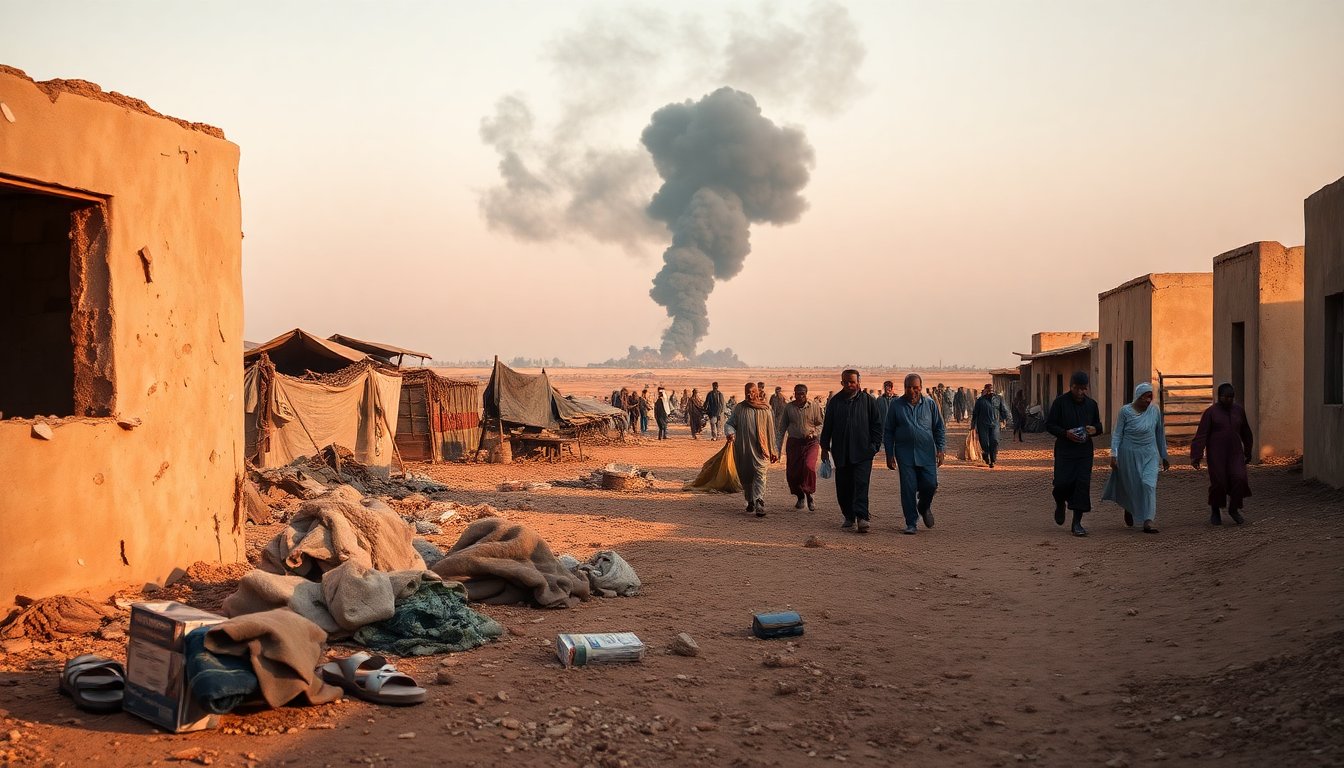Table of Contents
The conflict in Sudan’s Darfur region has escalated dramatically, with new reports detailing mass killings and efforts by paramilitary forces to erase evidence. As residents flee el-Fasher, they are confronted with starvation, injuries, and the painful reality of lost loved ones.
Desperate measures in el-Fasher
According to the Sudan Doctors Network, the Rapid Support Forces (RSF) are actively working to conceal their actions. Following a violent takeover on October 26, these groups are reportedly collecting hundreds of bodies from the streets of el-Fasher. The organization has condemned these actions, stating that attempts to hide the truth will not succeed against the mounting evidence of genocide.
Genocide and ethnic violence
The Sudan Doctors Network has highlighted that the recent events in el-Fasher are part of a widespread pattern of violence indicating a full-scale genocide aimed at specific ethnic groups. The organization stated, “What we are witnessing is not an isolated event; it is a continuation of the atrocities against communities in Darfur, standing in stark violation of both international and religious laws regarding the treatment of the deceased.” This statement resonates profoundly within the affected communities, emphasizing the ongoing crisis they face.
Humanitarian crisis unfolds
The International Organization for Migration (IOM) has reported that about 82,000 people have fled el-Fasher, a city home to around 260,000 residents. The violent takeover by the Rapid Support Forces (RSF) has triggered widespread chaos, forcing civilians to escape amid serious allegations of mass killings, torture, and sexual violence. Many remaining residents are trapped, struggling to find out the fate of their loved ones due to a communication blackout in the area.
Survivors recount their experiences
Al Jazeera correspondent Hiba Morgan has interviewed many individuals who escaped to nearby Al Dabbah. Their harrowing stories reveal a stark reality: many succumbed to injuries from violent confrontations or perished from dehydration and starvation during their escape. Survivors have described witnessing the deaths of friends and family members, often learning of these tragedies through social media videos shared by RSF fighters.
Targeting of ethnic groups
The ongoing conflict has deep roots, tracing back to the formation of the Rapid Support Forces (RSF) from the notorious Janjaweed militia. This group has been implicated in crimes against humanity in previous conflicts. Recent reports reveal that the RSF has specifically targeted individuals based on their ethnic heritage, focusing particularly on those with darker skin tones. Sylvain Penicaud, a representative from Doctors Without Borders, shared harrowing accounts of civilians being hunted down solely for their appearance.
The plight of the Zaghawa people
The Zaghawa ethnic group, predominant in the el-Fasher area, has allied with the Sudanese military in response to violent actions from the Rapid Support Forces (RSF) against other tribes. These alliances are seen as a survival strategy, particularly after the RSF’s brutal massacres of the Masalit tribe in West Darfur, which resulted in thousands of deaths. University student Hassan Osman shared troubling observations regarding the treatment of individuals with darker skin, who faced racial insults, humiliation, and violence while trying to escape to safety. He remarked, “If your skin tone is lighter, you might be spared. It’s a stark manifestation of ethnic discrimination.”
The humanitarian crisis in Darfur is intensifying, drawing the attention of the international community. The experiences of survivors reveal the ongoing struggle against oppression and violence, underscoring the urgent need for humanitarian assistance and intervention.


